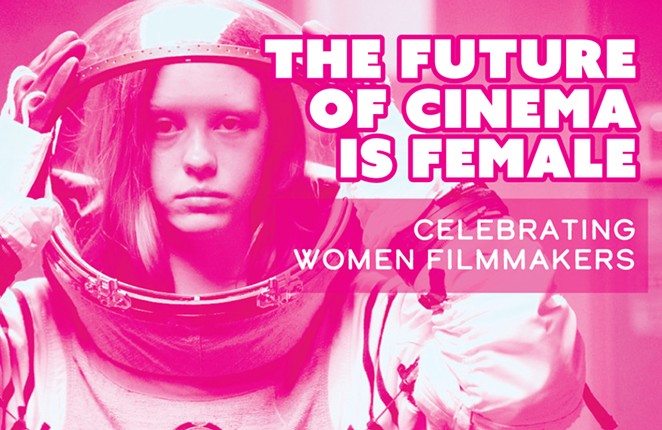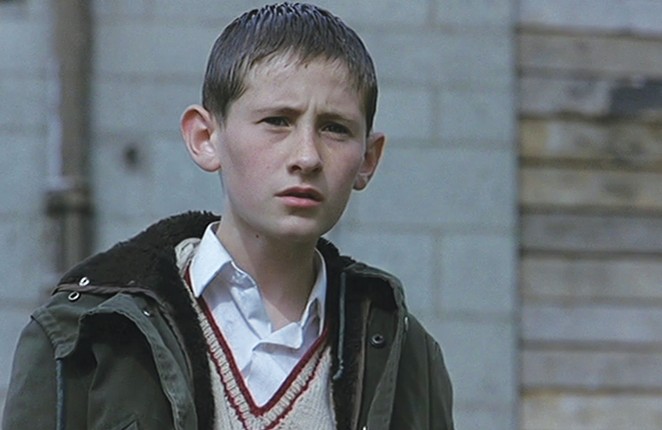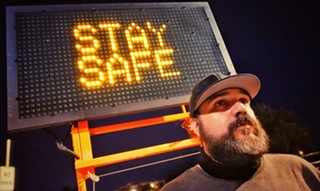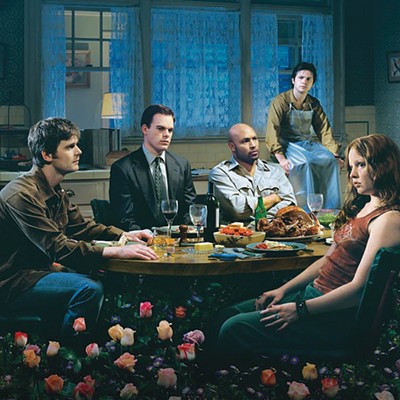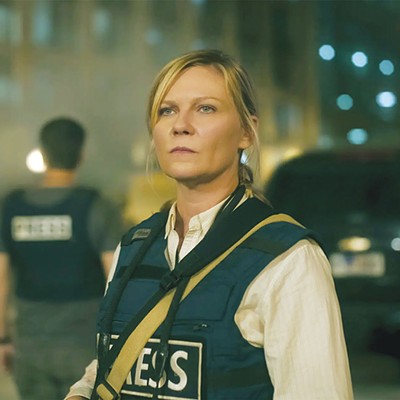Here's a painfully obvious statement: It's so much easier for men to make it as filmmaker in Hollywood than women. Then once a woman director gets huge and critically acclaimed, it's almost like Hollywood only has the bandwidth for one or two at a time. The studios are at a point right now where they're so desperate to show inclusivity and equality that they latch on to whatever women directors they think will get the most publicity and buzz at any given moment while immediately shuffling off the filmmakers that are on quieter projects.
That's why you still hear about Ava DuVernay, Kathryn Bigelow, Justine Triet and Greta Gerwig (who was snubbed this year anyway), but separate from each other, as opposed to highlighting that Hollywood has a thriving community of brilliant women filmmakers. Some of the greatest filmmakers of all time are women who don't remotely get the recognition they deserve. Well, there's no better time than now to look at just a few of the women auteurs that should be as big as Kubrick and Nolan.
Elaine May: I have to start with Elaine May who (finally) received an honorary Academy Award in 2022. In the '50s and '60s she was in a Chicago stage act with the great Mike Nichols until she transitioned into writing, directing and acting in motion pictures. In 1972 she directed "The Heartbreak Kid" and then in 1976 she wrote and directed the great and underseen "Mikey and Nicky."
It was after that where her timelessly witty writing style exploded with the classic "Heaven Can Wait," uncredited rewrites on "Reds," "Tootsie" and "Labyrinth" until the infamous (and deeply unfair) implosion of her career after she wrote and directed the widely panned bomb "Ishtar" in 1987. I say unfair not because the film is good (it's not), but because it basically got Elaine May thrown in director's jail to this day. Male directors are allowed flop after flop and keep getting hundreds of millions of dollars to play with, but women are rarely given the chance to fail and keep their careers.
May eventually had a bit of a career resurgence in the mid-'90s when she co-wrote "Dangerous Minds," "The Birdcage" and "Primary Colors," (and played Ruth Bader Ginsburg in "The Good Fight), but still hasn't been in the director's chair since 1987. Apparently, she has a film in development with Dakota Johnson that she is set to direct and, at 91 years old, I can't think of anyone who deserves it more.
Claire Denis: She's not only my favorite French filmmaker of all time, but at 77 years old, is still directing fearless and transgressive cinema that should last forever. Her work is mostly shot on location with naturalistic performances, classical framing and sometimes almost upsettingly long takes. Her films pull every single emotion out of me...sometimes at the same time, forcing me to think about the human condition in ways that light my comfort zone on fire.
From the subtle beauty of her 1988 debut "Chocolat," to the timeless longing of 1999's "Beau Travail," to the bloody, sexy obscurity of 2001's "Trouble Every Day," to the brilliant and uncomfortable sci-fi mind-f*ck of 2018's "High Life," Denis never repeats herself and is consistently a challenging and visionary auteur.
Lynne Ramsay: Every frame of Lynn Ramsay's films carries atmosphere, emotion, theme and formal brilliance. Most filmmakers give you one or two of those at a time, but to serve up the whole meal so flawlessly all at once is a rarity that I'm not sure many filmmakers have ever come close to reaching. The Scottish genius released her debut, "Ratcatcher," in 1999 and has only made three feature films since. But it's not premature to put Ramsay on a list of the all-time greats, just simply based on the strength of those movies.
"Ratcatcher" is an unforgettable gut punch that looks at poverty in Glasgow in the 1970s. "Morvern Callar" (one of my favorite films of all time) is an enigmatic character study starring a never-better Samatha Morton. "We Need to Talk About Kevin" is a chilling psychological thriller starring Tilda Swinton as a mother who's quickly coming to the realization that her teenage son is a psychopath. "You Were Never Really Here" has an astonishing Joaquin Phoenix as a violent and traumatized fixer who rescues trafficked girls from powerful men. These four movies are prime examples of the power that film can inherently carry when produced by a master.
Right now she's apparently working on a film called "Polaris" with Joaquin Phoenix and Rooney Mara, and an adaptation of Stephen King's "The Girl Who Loved Tom Gordon," so here's hoping we get a new Ramsay film sooner than later.
There are so many amazing women filmmakers that don't receive the same accolades as their male contemporaries do that it's honestly pretty depressing. Sofia Coppola has a visual style that's distinct from anyone else right now and "The Virgin Suicides" is an all-timer. Jane Campion is celebrated every few years, but never mentioned in discussions about the greatest living and currently working directors, even after the powerhouse that was "The Power of the Dog." Agnès Varda was the mother of the French New Wave. Nora Ephron knew exactly how to make us laugh and cry. Mary Harron basically invented memes with "American Psycho." Kelly Reichardt makes Oregon movies better than anyone in history. Sarah Polley pushes the boundaries of contemporary cinema with films like "Stories We Tell" and "Women Talking." Tamara Jenkins revolutionized indie cinema with "The Slums of Beverly Hills."
So many brilliant women filmmakers. Lisa Cholodenko, Susanne Bier, Mira Nair, Miranda July, Nicole Holofcener, Chantal Akerman, Sally Potter... don't even get me started on Karyn Kusama. There are dozens more I want to talk about. Do yourself a favor and try to watch one film a week directed by a woman for 52 weeks and be amazed by the talent that Hollywood so egregiously ignores.

